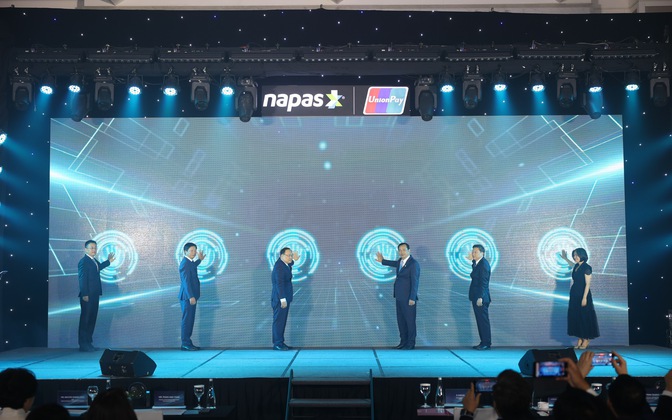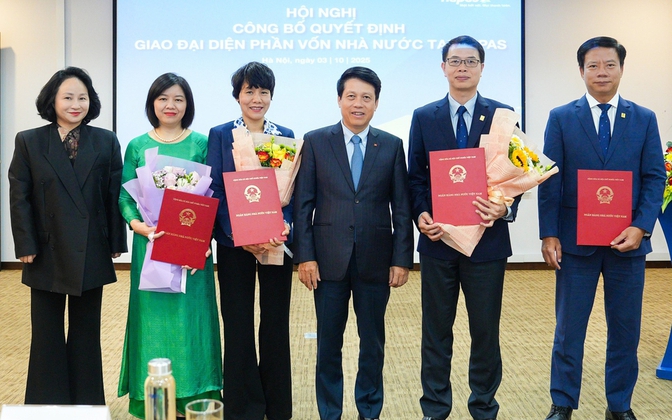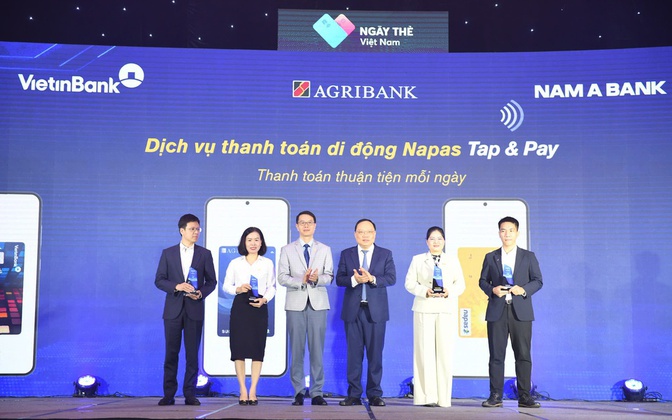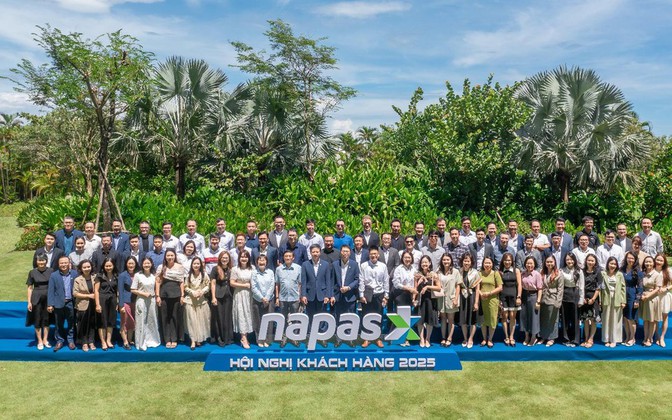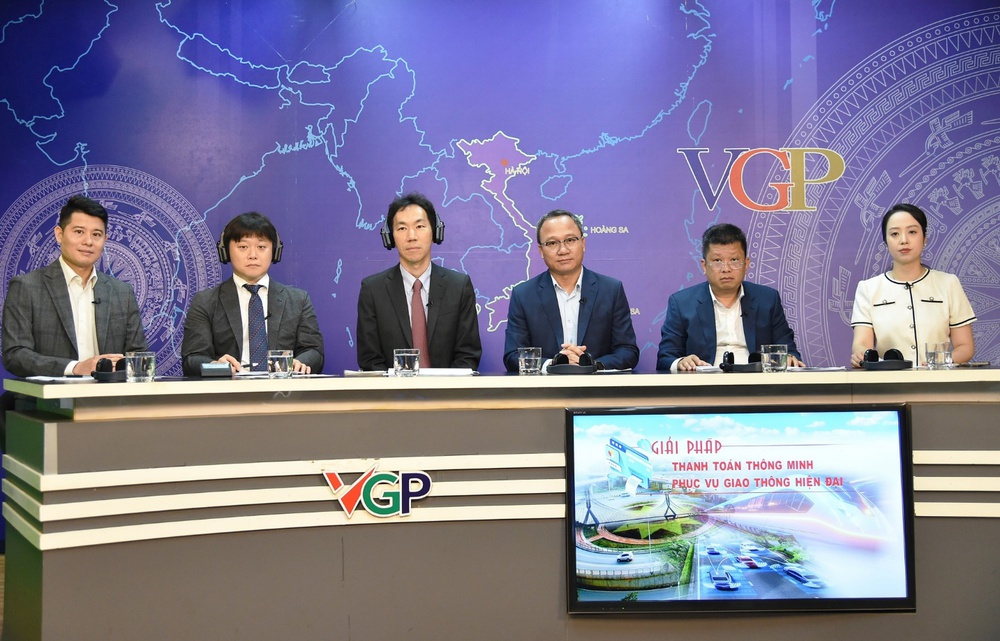
NAPAS Deputy General Director Nguyen Hoang Long Participates in the Online Seminar "Smart Payment Solutions for Modern Transportation"
The seminar served as an opportunity for representatives of competent authorities, experts, policymakers, and business operators to analyze, discuss, and examine issues related to promoting the transition toward a smart transportation system — particularly in the field of public transportation — in accordance with the Government's direction.
The seminar gathered distinguished participants, including Mr. Do Viet Hai – Deputy Director of the Hanoi Department of Construction; Mr. Khuat Viet Hung – Chairman of the Board of Directors of Hanoi Metro; Mr. Fukuda Chihiro – Deputy Chief Representative of JICA Vietnam Office; Mr. Satoru Horiuchi – General Director of Tokyo Metro Vietnam; and Mr. Nguyen Hoang Long – Deputy General Director of the National Payment Corporation of Vietnam (NAPAS).
Hanoi Determined to Develop a Smart Ticketing Ecosystem
From a management perspective, Mr. Do Viet Hai, Deputy Director of the Hanoi Department of Construction, emphasized that Hanoi has long aimed to develop a smart ticketing system in line with the city’s non-cash payment policy for public transportation. Beyond intra-city connectivity, the new system will be capable of integrating with automatic toll collection, parking, and multimodal transport services in the future.
To achieve this, Hanoi has issued several key decisions — notably Decision No. 3680/QD-UBND (July 2024) and Decision No. 6936/QD-UBND approving the Smart Transportation Scheme. Accordingly, the city plans to officially launch its integrated e-ticketing system under an IT service lease model on September 2, 2025.
The upcoming ticketing system will also adopt the Vietnam Chip Card Standard (VCCS) supported by NAPAS, enabling bank cards, e-wallets, and even citizen ID cards to be used within a unified platform — positioning Hanoi as a model smart city in digital payments.
As the national retail payment infrastructure provider, Mr. Nguyen Hoang Long, Deputy General Director of NAPAS, shared that in Ho Chi Minh City, Metro Line 1 has adopted a cashless payment model in cooperation with NAPAS and international card organizations such as Visa and Mastercard. NAPAS has fully prepared the technical infrastructure to integrate with the Automated Fare Collection (AFC) system, allowing passengers to use both domestic and international bank cards for metro travel without requiring a dedicated transit card.
The NAPAS leadership shared that while the preparation process took considerable time, the actual implementation was remarkably fast. The integration between NAPAS and the automatic payment system for the Ho Chi Minh City Metro was completed in just 20 days, thanks to well-prepared technical standards and smooth coordination among stakeholders. because all technical standards had been thoroughly prepared; once agreed upon, the entire system ran "smoothly and efficiently." "I believe our goal can extend beyond using bank cards for metro payments and eventually encompass other payment methods," he added.
According to Mr. Long, NAPAS previously conducted pilot tests of bank card payments for the VinBus system in Hanoi and at various airports, demonstrating the feasibility of the model.
Meanwhile, Mr. Khuat Viet Hung – Chairman of the Board of Directors of Hanoi Metro – candidly shared that the two metro lines in Hanoi still operate separate ticketing systems, and passengers buying single-ride tickets must either pay in cash or buy tickets at stations. Therefore, integrating the lines and enabling "smart payment connectivity" is an urgent necessity.
NAPAS Ready to Integrate Payment Infrastructure into Public Transportation Systems
Experience from Japan shows that achieving interoperability in electronic ticketing is a long journey requiring persistence and close coordination. Mr. Satoru Horiuchi – General Director of Tokyo Metro Vietnam – shared that in Japan, railway lines initially operated independently. Starting in 2000, the country began standardizing its prepaid card systems, and by 2013, all IC cards such as Suica and Pasmo could be used nationwide — not only for transportation but also for shopping and daily activities.
According to Mr. Horiuchi, Japan established research groups such as the "Passnet Window" and the "Pasmo Study Group" to unify standards and implementation methods. Drawing from this experience, he suggested that Vietnam should establish a strong coordinating body to lead the standardization process and ensure consistency in technical specifications, policies, and data management among all relevant stakeholders.
In addition, Mr. Fukuda mentioned the multimodal connectivity approach, noting that in Ho Chi Minh City, the bus system is being developed to connect with metro stations, enhancing convenience for commuters — a model that Hanoi should consider adopting.
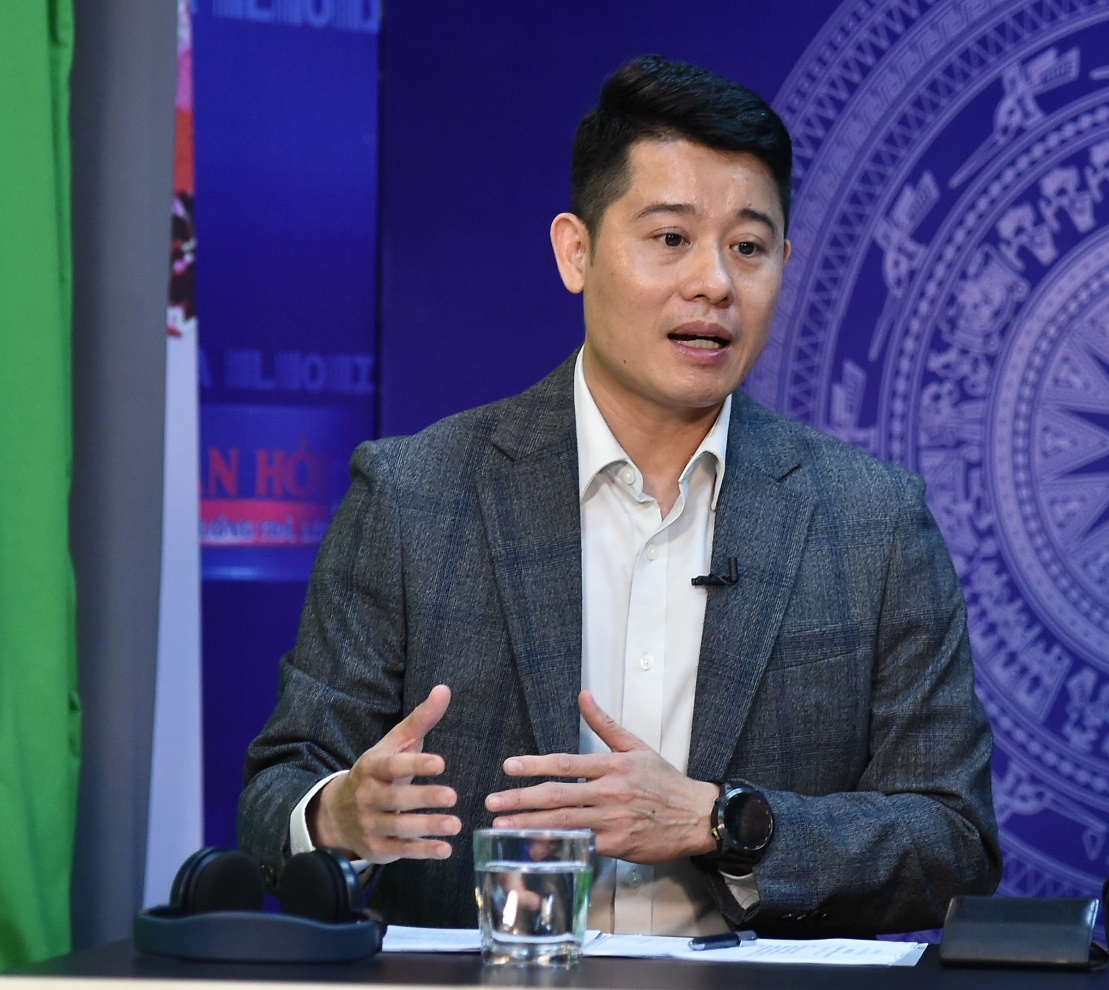
Mr. Nguyen Hoang Long, Deputy General Director of NAPAS, Shared at the Online Seminar
Emphasizing the importance of clearly defining roles, Mr. Khuat Viet Hung further highlighted the need for a clear division of responsibilities between state management agencies and enterprises. Each party must understand its role: businesses should proactively operate their own systems, while the State is responsible for coordination, policies, and data management. Most importantly, system stability must be ensured even in the event of disruptions to the integrated network.
"In my opinion, the most important factor for successful implementation is simply to take action. NAPAS has already prepared the payment infrastructure — now it’s time to execute. For example, we need to integrate with the Metro system to ensure seamless connectivity with the system managed by the Department of Construction. At the same time, we must also design our system to be compatible with theirs. This is a joint effort between both sides. The payment platforms are ready, the tools are in place — all that’s left is to get it done," said Mr. Khuat Viet Hung.
Mr. Nguyen Hoang Long, Deputy General Director of NAPAS, shared that digitalization and digital transformation are key priorities of the Government, and in the field of payments, NAPAS has successfully completed the implementation of digital payment solutions.
"Nowadays, everyone can see that a bunch of vegetables at the market can be purchased by scanning a QR code, or a cup of coffee can be paid for using a smartphone. Therefore, there is no reason why, in the near future, we cannot apply such modern and fast payment methods to public transport infrastructure, such as the metro system. In fact, as long as a phone is linked to a bank account or VNeID, citizens can access the metro. Cashless payments have become a habit, and we need to leverage this to accelerate the implementation of an integrated ticketing system," Mr. Long said.



